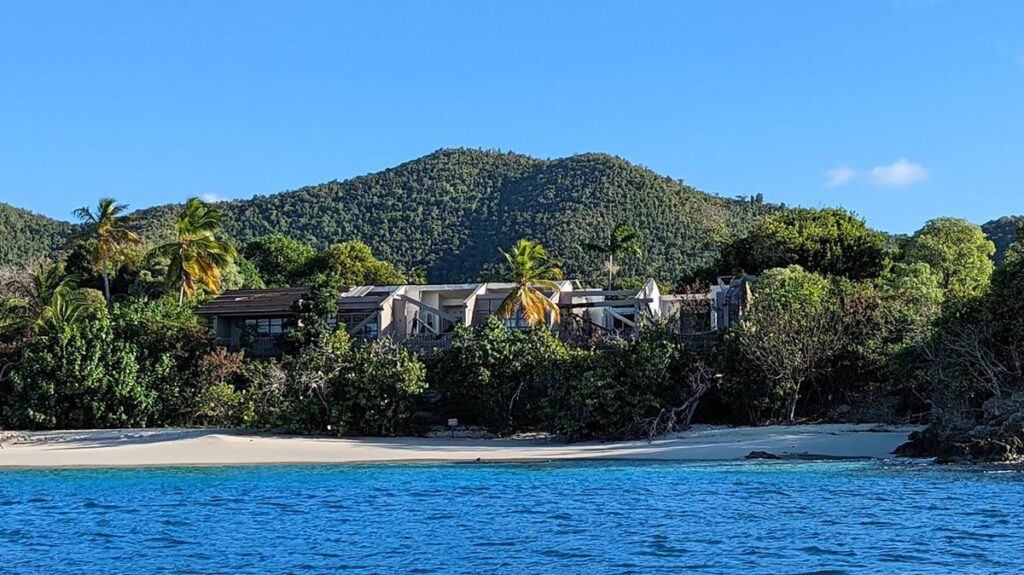CRUZ BAY — The federal government and EHI are still in disagreement over whether another company, CBI Acquisitions, should be added as a party to EHI’s lawsuit seeking ownership of the former Caneel Bay Resort property on St. John.
EHI filed a “quiet title” claim against the U.S. government in June 2022, and lawyers for the government responded with a motion to dismiss, arguing that CBI should have been joined as a necessary party.
Third U.S. Circuit Judge Cheryl Ann Krause has not yet ruled on the motion.
The historic resort had been run under an unusual indenture agreement that dates back to 1983, when developer Laurance Rockefeller established the company Jackson Hole Preserve Inc. and donated Caneel Bay to the National Park Service — but retained the right to operate it as a resort until September 2023.
EHI “acquired title to the land by virtue of a mechanism in the 1983 Indenture, which provides that when certain conditions are triggered, ‘title to the Premises’ shall revert, automatically and without further deed’ to Plaintiff,” according to a filing by EHI.
The resort was destroyed by the 2017 hurricanes and has not reopened to overnight guests.
The federal government is claiming ownership of the land, and argued in a motion to dismiss that a related company, CBI Acquisitions LLC, should be joined as a necessary party to EHI’s lawsuit.
Attorney Chad Messier has argued on behalf of EHI that “it is undisputed that CBI does not claim title to the land,” and “holds only a lessee interest in the leasehold, which does not make CBI a necessary party.”
Gary Engle, who is a principal of both EHI and CBI, signed a disavowal of interest in Caneel Bay on behalf of CBI, which was filed in U.S. District Court in February by EHI attorney Julien Adams.
Assistant U.S. Attorney Joycelyn Hewlett said in a response filed March 8 that CBI’s disavowal insufficient to moot the government’s motion to dismiss.
“CBIA must be joined in order for the Court to decide who has title to the land and improvements and enter a final judgment. Neither the United States nor EHI could acquire title to the improvements if CBIA is not joined as a party,” Hewlett wrote.
On March 22, Krause ordered EHI to address the government’s contention that CBI “has neither disavowed any interest in nor waived any future claims to the resort’s improvements.”
Messier and Adams responded Monday, arguing that CBI’s interest in the property as a lessee expired on Sept. 30, and “title to and ownership of the Improvements automatically passed to and vested in EHI,” according to the filing. “Accordingly, CBIA holds no interest in the Improvements, and therefore has no standing in this case.”
They included a statement signed by Engle on March 28, explaining the history of the lease and retained use estate.
The 1983 indenture included a provision that kept the Retained Use Estate from terminating so long as a mortgage is in effect, “But because the Lease did not contain an analagous provision preventing its termination, the Lease expired at the end of its term, on September 30, 2023,” according to Engle’s statement.
In July, the National Park Service announced plans to solicit bids from developers to rebuild the resort and increase public access to portions of the 150-acre property. But those plans have been on hold while the Park Service waits for the court to rule on the ownership dispute with EHI.
In September, Chief District Court Judge Robert Molloy ordered the government “to refrain from taking any action to manage the property or otherwise dispossess Plaintiff of the property,” until the issue is resolved.
Krause took over the case in December, and has not yet ruled on EHI’s claim.

